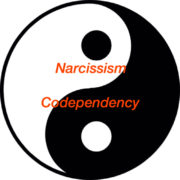Why so guilty? Or maybe I should ask ‘Why are you so afraid of being yourself?’

Why so guilty?
Often I help people explore the difference between disappointing others and being a disappointment to themselves. If you default to pleasing others, and feel guilty when you don’t, then your habit is to mask or deny your own needs due to the fear of what others might think of you. That is a very painful way to live your life. It means you constantly give away your power and control to others, and then fret over whether or not you did the right thing. Using worry as a way to problem solve is not effective.
Guilt vs Shame
You could say this is part of the difference between guilt and shame. Guilt means you did (or did not) do something that was expected, and you can apologize and/or offer help to remedy the situation. That would be a healthy way to remedy feeling disappointed in yourself for your actions, or the lack of them.
Shame means you have decided to broadly paint yourself as all one way, and without a doubt, it is negative and absolute. There is nothing beneficial that can be derived from doing this to yourself, or someone else.
Nothing.
There is a lot tied up there. Becoming aware, making that distinction between guilt and shame, and understanding the difference is important.
For example, I feel disappointed when I invite someone over for dinner and they are not available. Pretty normal and common, a typically safe experience. The calendars simply did not line up. We’ll do it at another time. Similarly, when I can’t show up for someone they may feel disappointed. However I am not a disappointment for not being able to show up, nor do I cast my friends as being disappointing themselves.
Sometimes to disappoint someone else is a by-product of doing what is in our best interest. When I really began to understand that and accept I was worthy of being a priority, I stopped taking responsibility for the feelings of others, and stopped feeling guilty.
Sometimes to disappoint someone else is a by-product of doing what is in our best interest. –Page Rutledge, LCSW
Disappointment Is Part Of The Curriculum
Disappointment is a part of being a human, it’s part of the curriculum. It’s not anyone’s job to rush around, bending over backwards, sacrificing oneself, in order to save everyone else from disappointment.
Another way to look at this is to ask: Who is sacrificing themselves constantly to make sure that YOU are never disappointed? No one. That’s who. The skill that needs to be nurtured is being able to tolerate the uncomfortable sensation of someone else’s disappointment and learning that it will pass.
The skill that needs to be nurtured is being able to tolerate the uncomfortable sensation of someone else’s disappointment and learning that it will pass.–Page Rutledge, LCSW
You are not required to set yourself on fire to keep others warm.
Part of this is learning to say no successfully, and it takes practice. After you do it few times, it gets much easier.
Having certain expectations of others may sometimes bring disappointment. You might think of this as a case of “the shoulds.” However, your rules may not apply to others.
To be true to yourself, you have to live the life that you want to live and not the life that (you think) others expect you to live. In order to do that, you have to make decisions around what YOU want. This may bring disappointment to others, and that is okay. It is part of you becoming you! Learn to pay close attention to your needs and wishes, and learn to make them known in a way that can be heard, without feeling guilty in the process. This takes practice.
As long as we are not violating their needs or rights, we are not responsible for how other people feel. If someone feels disappointed, that’s on them. Another person might have a different response than disappointment to the same situation.
If you need help learning how to tell the difference between disappointing others and being a disappointment to yourself, contact me here. Knowing how to state your needs, as well as learning that you don’t have to fall into a black hole of self-loathing for doing so will set you free.
Tension is who you think you should be. Peace is who you are. –Ancient Chinese proverb, paraphrased
Tension is who you think you should be. Peace is who you are. Constantly feeling guilty is not healthy. Come unlearn this with me, in a safe place where you can practice and “fail safely.” Contact me here.











